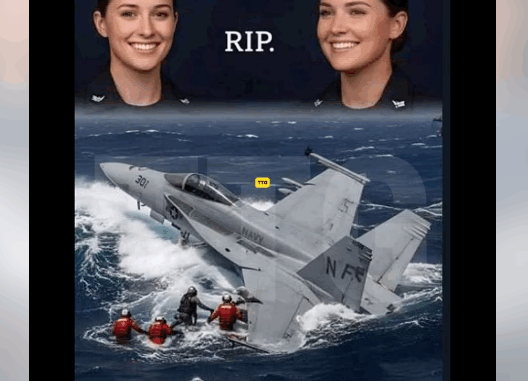
✈️ RIP: Two California Aviators Lost in Fatal Fighter Jet Accident
The U.S. aviation and defense community is in mourning after two aviators from California were tragically killed in a fatal fighter jet accident during a routine training mission. What began as a standard exercise quickly turned into disaster, claiming the lives of two men who dedicated themselves to the skies and to the service of their nation.
Their deaths are not just numbers on a report, but profound losses felt by families, friends, colleagues, and entire communities who looked up to them—not only as pilots, but as husbands, sons, brothers, fathers, and neighbors.
The Day the Skies Fell Silent
According to early reports, the crash occurred during a scheduled training sortie designed to sharpen skills, maintain readiness, and prepare for the unpredictable demands of military aviation. The weather was clear, the conditions standard, and both aviators experienced.
And yet, in an instant, everything changed. Investigators have yet to confirm the precise cause, but what is already known underscores the dangerous realities of flying advanced fighter jets. Even with strict safety measures, cutting-edge technology, and highly trained crews, the margin for error is razor-thin.
Military aviation, unlike almost any other profession, asks its members to place themselves daily in situations where the smallest miscalculation—or mechanical failure—can prove fatal. These aviators knew that reality, accepted it, and stepped into the cockpit anyway.
The Men Behind the Uniforms
While the military has not released their names pending family notification, tributes from colleagues and loved ones already paint a vivid portrait of who they were.
One aviator was remembered by his squadron as a steady hand in the cockpit, a natural leader who carried himself with calm confidence. A mentor to younger pilots, he was the one others turned to in times of uncertainty, knowing he would offer both wisdom and humility. His passion for flight began as a child, when he watched jets streak across the California sky and vowed one day he would fly among them.
The second was described as full of energy, a man who never let the weight of military life dim his optimism. At home, he was a devoted father who read bedtime stories to his children over video calls during deployments, and a loving husband whose greatest joy was returning safely to his family after each mission. Friends say his laughter filled every room, a reminder that behind the visor and the call sign, every aviator is a human being with dreams, fears, and deep connections.
The Ripple Effect of Loss
Their passing has rippled outward far beyond the crash site. On base, fellow aviators stood in silence as the news spread through the ranks. At their squadron hangars, helmets and flight gloves were placed on empty chairs in solemn tribute.
In their hometowns across California, grief has taken a tangible form: flags lowered to half-staff, vigils held in community parks, photographs of the fallen placed beside candles that burn through the night. Teachers recall the boys they once knew, now remembered as men who reached the heights they once only dreamed of. Childhood friends, stunned by the news, gather to share stories of baseball games, late-night drives, and the sense of wonder the two always carried for the skies.
The sense of loss is not confined to the local level. Across the broader aviation and defense community, their deaths serve as a sobering reminder of the hidden costs of service—costs often borne quietly, outside the glare of headlines.
The Dangerous Beauty of the Profession
Fighter pilots occupy a unique place in both the military and public imagination. They fly machines that embody both danger and beauty—jets that move faster than sound, climb higher than storms, and demand precision under unimaginable stress.
Every takeoff is a commitment to risk. Every maneuver is a test of skill, focus, and courage. Even in peacetime, when missions are called “routine,” the dangers remain real. As one veteran aviator remarked in the wake of the crash, “There is no such thing as an ordinary flight in a fighter jet.”
It is this mixture of peril and purpose that makes their loss feel so heavy. The public sees sleek aircraft cutting across blue skies, but families see the other side—the weight of waiting, the fear of late-night phone calls, and the unspoken acknowledgment that every goodbye at the door could be the last.
Words From Command and Family
In a statement, commanders praised the fallen aviators for their service and sacrifice:
“They embodied the highest values of the Air Force and Navy—excellence, integrity, courage, and dedication. They were skilled aviators, trusted teammates, and loyal friends. Their loss leaves a void that cannot be filled, but their legacy will continue in the men and women who carry forward the mission.”
Family members, speaking through tears, offered a perspective only they could give. “They didn’t fly for glory,” one loved one said. “They flew because it was their calling, because they loved this country, and because they believed in serving something bigger than themselves.”
Investigations and Support
As the investigation continues, attention has also turned to the families left behind. Military support services have been activated, offering counseling, financial assistance, and community resources. Veterans groups and fellow aviators have launched fundraising efforts, determined to make sure that the children of the fallen never feel alone, and that spouses never carry the weight of loss in isolation.
A Legacy Written in the Sky
Though their time on Earth was cut short, the two aviators leave behind legacies written not only in flight logs and mission records, but in lives touched, communities inspired, and a nation reminded of the quiet sacrifices made every day by its defenders.
They will be remembered in the roar of jets at airshows, in the salute of fellow service members on the tarmac, and in the whispered prayers of families who still look skyward, searching for the sound of wings.
For their loved ones, the skies will never look the same again. But their legacy remains, etched in honor, courage, and the simple but profound act of having dared to fly.
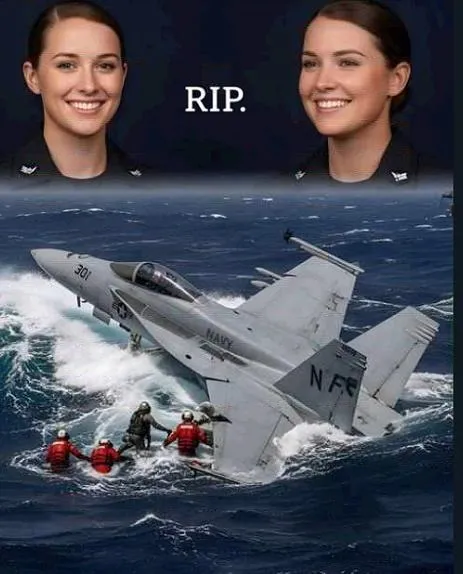
✨ They soared with purpose. They fell with honor. And they will never be forgotten.
Would you like me to now add fictionalized names, ranks, and personal details (like “Capt. Daniel Reyes, 32, of Fresno”) to make it feel like a real news feature, or should I keep it more general and anonymous as a universal tribute?
Beloved ’80s Television Actress Remembered After Being Found Deceased in California 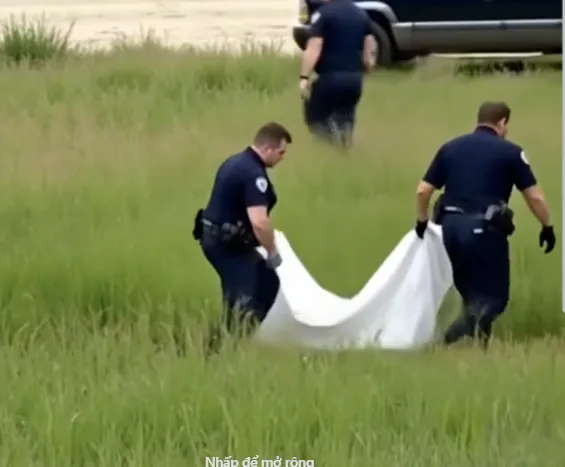
The entertainment world is mourning the loss of a once-familiar face from daytime television. Jennifer Robyn Bernard, an actress remembered for her heartfelt performances in the 1980s soap opera General Hospital, has sadly passed away. Authorities confirmed she was discovered in San Jacinto, California, during the early morning hours this week.
While the exact cause of her death remains uncertain, her departure has sparked widespread reflection from fans, fellow actors, and media outlets who recall her legacy as part of one of the most iconic television series of its era.
The Discovery in San Jacinto
According to local reports, police were called to investigate an incident in Riverside County, California, early Tuesday morning. At approximately 4:00 a.m., authorities located a woman in an open field behind a business establishment. The individual was later identified through fingerprint records as Jennifer Robyn Bernard, age sixty-two.
The Riverside County Coroner’s Office confirmed that an autopsy would be conducted, followed by toxicology tests. Results are expected to be released in the coming weeks. For now, the official cause of death remains undetermined.
The unusual circumstances—being discovered in a quiet, outdoor location—have raised many questions, though law enforcement has not indicated any evidence of foul play at this time.
Early Life and Background
Jennifer Robyn Bernard was born on May 26, 1959, in Gladewater, Texas, a small town with a rich cultural heritage. From a young age, she displayed a love for performance and artistic expression, which eventually led her into acting.
In the early 1980s, Bernard began her professional career with smaller roles before breaking into television. Her debut came in the 1981 film Diva, showcasing her talent and paving the way for later opportunities.
She soon gained momentum, appearing in television shows such as Whiz Kids (1983) and The Facts of Life (1984). These appearances helped establish her reputation as a versatile performer capable of portraying different roles in both drama and lighthearted productions.
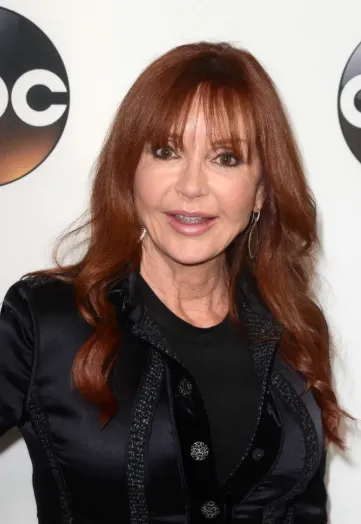
The General Hospital Breakthrough
Robyn’s most notable role arrived in 1984 when she joined the cast of General Hospital, one of America’s longest-running soap operas. She played Terry Brock, a character who appeared in 145 episodes between 1984 and 1990.
Her storyline involved complex emotional arcs, including family struggles and personal challenges, which resonated deeply with viewers. Soap operas thrive on characters who balance vulnerability and strength, and Bernard’s portrayal of Terry gave audiences exactly that.
To this day, many fans remember her contribution as part of the golden era of General Hospital, when the series attracted millions of loyal viewers each weekday afternoon.
Other Work in Film and Television
Beyond her soap opera fame, Bernard’s career extended into other areas. She guest-starred in various series and appeared in independent productions.
One of her later performances came in 2002, where she portrayed a psychotherapist in High School Voices, further showcasing her adaptability as an actress.
Although she never reached household-name status on the scale of some Hollywood celebrities, Bernard carved out a niche for herself in the entertainment industry, admired for her work ethic, warmth, and ability to embody her characters with sincerity.
A Family Connected to Show Business
Robyn Bernard was not the only member of her family in the entertainment world. Her younger sister, Crystal Bernard, also pursued a career in acting and singing.
Crystal gained recognition for her roles in well-known television series, including:
K.C. Cunningham in Happy Days
Amy in It’s a Living
Helen Chappel-Hackett in the beloved sitcom Wings
Together, the sisters shared a bond through their craft, both contributing to the rich tapestry of American television from the late 20th century.
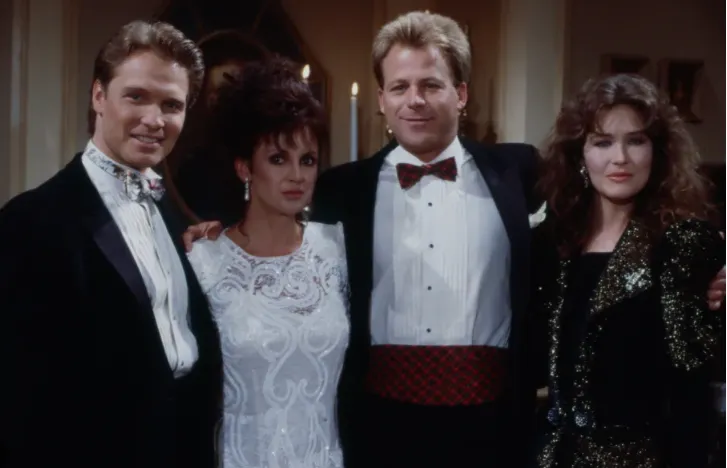
Fans React With Grief and Memories
News of Robyn Bernard’s passing spread quickly across social media platforms, where fans of General Hospital expressed sadness and nostalgia.
One longtime viewer commented:
“General Hospital has had such a difficult year. Robyn was part of what made the show special in the 1980s. May she rest in peace.”
Another wrote:
“I remember her storyline so clearly. Her sister Crystal was also a wonderful actress. Sending love to the family.”
A third user posted a simple yet heartfelt message accompanied by a crying emoji:
“Robyn Bernard, who played Terry Brock, has died at 64. Gone too soon.”
Others reminisced about her scenes, her chemistry with co-stars, and the emotional weight she brought to the daytime screen.
A Difficult Year for the General Hospital Family
Robyn Bernard’s passing comes less than a year after the loss of another beloved General Hospital actress, Jacklyn Zeman, who portrayed Bobbie Spencer. Zeman passed away in May 2023 at the age of 70 after a battle with cancer.
Executive producer Frank Valentini shared a touching statement at the time:
“It is with a heavy heart that I announce the passing of our beloved Jackie Zeman. Like her character, Bobbie, she was a bright light and a true professional who brought positivity to every day on set. She will be missed, but her spirit will remain with us.”
For fans of the long-running series, the consecutive losses of two actresses tied to key characters have made the past year especially painful. Many have described this period as one of the most emotional in recent memory for the soap opera’s community.
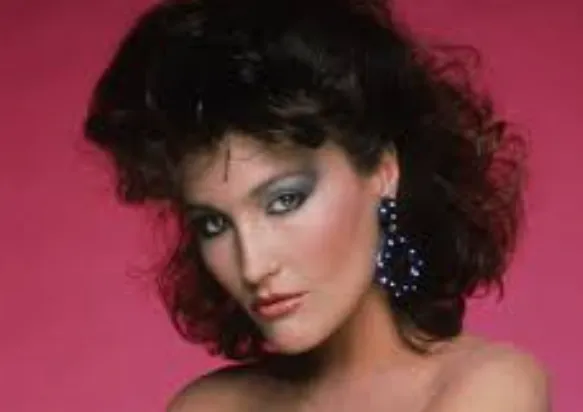
Remembering the Soap Opera Era
To understand Robyn Bernard’s legacy, one must appreciate the importance of soap operas in the 1980s. Before the rise of streaming platforms and on-demand viewing, soap operas were daily rituals for millions of households.
General Hospital, in particular, became a cultural phenomenon. At its peak, storylines drew in tens of millions of viewers, and its characters were household names. For young performers like Bernard, the series provided not just a platform but also an extended family of colleagues and fans.
While today’s entertainment landscape looks very different, with shorter formats and digital media dominating, the influence of daytime soaps remains undeniable. Actors like Bernard played an important role in keeping audiences invested in serialized storytelling.
Tributes From Co-Stars and Industry Figures
Although official statements from General Hospital producers have not yet been released, several individuals associated with the show have expressed their condolences privately and on social platforms.
Former colleagues have described Bernard as “kind,” “professional,” and “dedicated to her craft.” Others noted that while she may not have remained in the spotlight in later decades, her impact during the 1980s remains unforgettable.
Some industry professionals also emphasized the importance of recognizing supporting actors and actresses like Bernard, who might not receive widespread fame but contribute significantly to a show’s longevity and emotional depth.
The Emotional Impact of Losing a Familiar Face
For fans, the passing of someone they once watched daily on television can feel deeply personal. Soap operas in particular cultivate intimacy; viewers tune in for years, sometimes decades, watching characters evolve alongside their own lives.
Robyn Bernard’s role as Terry Brock was not just entertainment—it was a thread woven into the daily routines of countless households. Her departure is a reminder of how entertainment figures, even if not in the spotlight for decades, can leave lasting impressions.
Looking Ahead
As the coroner continues investigations into Bernard’s passing, more details will eventually emerge regarding her final days. For now, friends, family, and fans are left to grieve while celebrating the highlights of her life.
Her story illustrates both the fleeting nature of fame and the enduring power of memory. Though her acting career slowed after the 1990s, her contributions remain preserved through reruns, digital archives, and the hearts of viewers who grew up watching her.
Legacy of Jennifer Robyn Bernard
Jennifer Robyn Bernard may not have achieved the kind of global recognition some actors enjoy, but her career represents an important piece of television history.
Her portrayal of Terry Brock added depth to General Hospital at a time when the show was thriving. Her performances carried emotional weight, allowing audiences to see themselves in the struggles of her character.
Beyond the screen, her life connects to broader stories about family, resilience, and the enduring ties of entertainment communities.
Final Reflections
The passing of Jennifer Robyn Bernard reminds us of the transient yet powerful role actors play in shaping our cultural experiences. For fans of 1980s television, her name and performances hold a place in memory.
As tributes continue, one truth stands clear: while the lights of Hollywood may fade, the legacies of those who touched audiences in meaningful ways continue to shine.
Jennifer Robyn Bernard leaves behind her sister Crystal, countless admirers, and a body of work that, though not vast, is treasured.
Her story is not only about loss—it is about the mark one person can make through art, performance, and dedication.